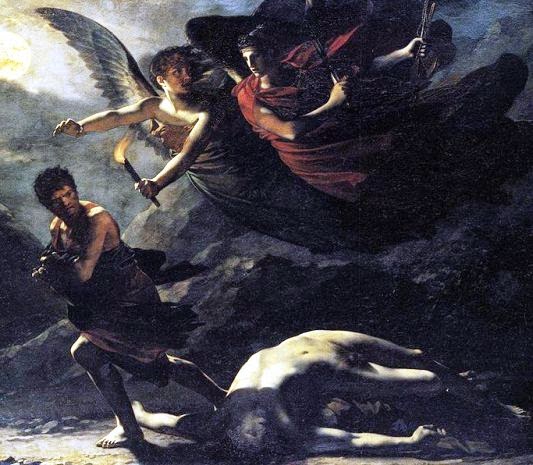Hera was the Queen of the gods, and goddess of the sky, women and marriage. Hera was angry at Hercules,( Zeus's son) and she asked Hypnos (god of sleep) to make Zeus sleep while she tormented the hero. When Zeus awoke, he was furious. He searched for Hypnos and finally found him hiding in the arms of his mother, Nyx. Zeus overcame his anger and simply warned Hypnos not to try such a trick again, and Hypnos went unpunished.
 |
| Hypnos with his mother Nyx |
During the Trojan War, Hera wanted to distract Zeus from the battle so she could assist the Akhaians, who seemed to be losing the war. She wanted Hypnos to cast a spell of sleep on Zeus, but he refused. At first Hera offered Hypnos a golden throne crafted by Hephaestus, but she was forced to raise the price when Hypnos reminded her of the only time he had dared cast sleep on Zeus.
In preparation for this new deception, Hypnos made Hera swear oaths of her sincerity. He agreed to help her deceive Zeus for the hand of Pasithea, one of the Graces. He turned himself into a bird and, before Zeus could see him, hid in the top of the trees on Mount Ida. He stayed hidden until Hera had seduced Zeus.
 |
| Hypnos sending Zeus into sleep |
When the Zeus was dulled by pleasure and sleep, Hypnos flew to Poseidon and urged him to increase his efforts in helping the Akhaians because Zeus was asleep and unaware of his meddling. Poseidon strode through the ranks of soldiers and urged them on. Finally, his bellowing and screeching roused Zeus from his slumber but, in that short time, the Akhaians had turned the battle back on the Trojans. Hera’s trick had worked. Zeus never found out that Hypnos had betrayed him.
INDEX














